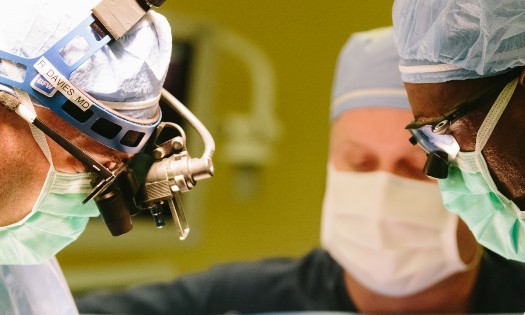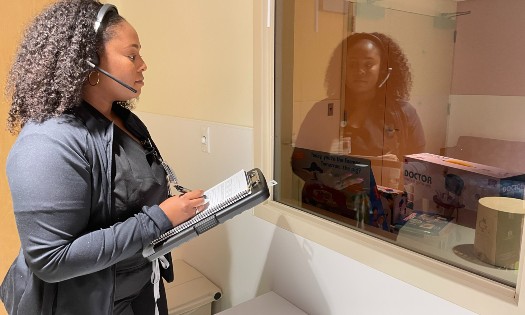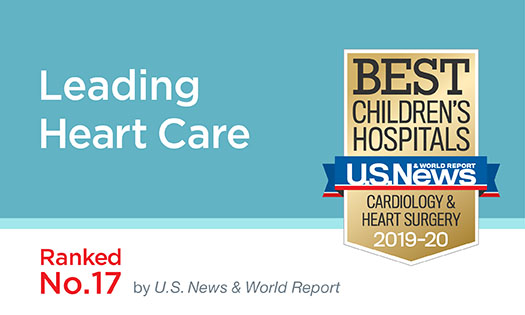Children with heart conditions – especially those who need open-heart surgeries – are more likely to have cognitive, developmental, socio-emotional and behavioral challenges that impact their quality of life.
The multidisciplinary Cardiac Neurodevelopmental Program at Children’s Medical Center Dallas, part of Children’s Health℠, was established in 2016 to help families manage these challenges, so children can reach their full potential at school, at home and in life.
It was among the first programs of its kind in the state – and we’re constantly working to improve it and provide even better care to this population. That’s why we recently added transition-of-care planning, a pilot screening tool for patients with single ventricle heart defects and a dedicated focus on increasing the provision of equitable care for Spanish-bilingual families. It’s all part of our commitment to constantly raise the bar for pediatric cardiac neurodevelopmental care.
1. Transition-of-care planning from before childbirth to adulthood
Transition-of-care planning provides personalized care during critical transitions throughout a child’s life. Services start before birth and continue as a child moves through elementary, middle and high school. The program also helps teens transition into young adulthood and adult medical care.
Randi Cheatham-Johnson, Ph.D., Licensed Psychologist in the Children’s Health Heart Center and Assistant Professor at UT Southwestern, meets with parents as soon as they learn their child has a heart condition. Often, this diagnosis comes prenatally. Dr. Cheatham-Johnson educates families about the neurodevelopmental risks associated with heart defects. “We help parents understand the breadth of resources and support available at Children’s Health, so they know they’re not alone on this journey,” she says.
In October 2023, the team began screening fetal patients for perinatal mental health concerns to help better understand a family’s needs during pregnancy and throughout a child’s first year. Perinatal mental health screenings help identify concerns like depression, anxiety and stress to efficiently connect caregivers with appropriate support and resources.
After a child is born, the team identifies neurodevelopmental therapies, such as physical, occupational and speech therapies, that improve early childhood outcomes. Transition-of-care planning continues as a child navigates each major school change. The team conducts ongoing evaluations to help identify accommodations that can improve a child’s success both inside and outside of the classroom.
“Our goal is to empower parents with the information they need to advocate for their child through each major school and life transition,” says Marsha Siebenmorgen, Ph.D., a Neuropsychologist in the Children’s Health Heart Center and an Assistant Professor at UT Southwestern. “Educated, empowered parents are the best role models for their children who will need to advocate for themselves as they get older and become more independent.”
2. Early screening of cognitive and behavioral concerns in Fontan patients
Children with single ventricle heart defects who undergo a series of open-heart surgeries, including the Fontan procedure, are more likely to have difficulties with thinking, learning, communication, and executive and psychosocial functioning.
To quickly identify these concerns, the team is piloting an abbreviated neurodevelopmental screening checklist they developed for all patients who receive care at the Fontan Clinic. Parents, and patients who are developmentally 12 years of age and older, answer yes-or-no questions about nine different areas, such as attention, memory and language.
“Other questionnaires ask parents or children to rate how often a behavior occurs, such as sometimes, never or rarely. The choices can be confusing. Plus, the questionnaires are lengthy and not always conducive to a consultation setting,” says Angela Canas, Ph.D., a Neuropsychologist in the Children’s Health Heart Center and Assistant Professor at UT Southwestern.
Dr. Canas helped develop the English and Spanish versions of the new tool. “Our checklist is easy to complete,” she says. “It provides a quick snapshot of how a child is doing, so we can initiate interventions or recommend a full evaluation while the family is still at the clinic.”
The team is collecting data from this pilot initiative to use for a more formal development and validation process. Eventually, we hope to use the tool to screen all pediatric heart patients. Preliminary findings presented at the 2022 Scientific Sessions of the Cardiac Neurodevelopmental Outcome Collaborative (CNOC) and the 2023 World Congress of Pediatric Cardiology and Cardiac Surgery indicate a strong correlation between the symptoms neuropsychologists identify during outpatient evaluations and those reported on the screening tool by parents or patients.
3. Making neuropsychological evaluations part of routine cardiac care
Ongoing care for pediatric heart patients requires many follow-up appointments. Some families may skip neuropsychological evaluations because they don’t understand the importance of this care, or they’re concerned about missing work or school.
To improve treatment adherence, the team switched to a database system that notifies them when to schedule evaluations or alerts them to overdue assessments. “We’re examining the reasons behind missed appointments, so we can minimize these barriers to care,” says Dr. Cheatham-Johnson. One solution the team is reviewing involves virtual screenings and evaluations for families who live farther away.
4. Providing care in a patient’s dominant language
As one of four Spanish-speaking neuropsychologists at Children’s Health and UT Southwestern, Dr. Canas knows the importance of conducting patient evaluations in a child’s dominant language and communicating with parents in their preferred language.
“Evaluating a child in their dominant language can greatly affect test results and helps prevent misdiagnosis,” she says. “For instance, a child from a Spanish-speaking home who receives mostly bilingual instruction at school may be more proficient in Spanish. If I evaluate this child exclusively in English, their scores might indicate cognitive delays, a language disorder or dyslexia. But they may be on the same level as their peers when tested in Spanish.”
Talking to parents in their preferred language also improves treatment adherence. “Studies show that patients respond better to providers who are racially, ethnically and culturally more like them,” says Dr. Canas. “Medical interpreters are helpful, but there’s still a chance of misinterpretation. When parents don’t understand what their child needs or why, they may not follow through on recommendations. We have a large Hispanic population in Texas, and we want those families to have access to the same high-quality care at Children’s Health as everyone else.”
Why Children’s Health: Leaders in cardiac neurodevelopmental care
The Heart Center at Children’s Health consistently rates among the nation’s top cardiology and cardiothoracic surgery programs for children. The Cardiac Neurodevelopmental Program remains the only one in North Texas offering comprehensive neurodevelopmental services for children with heart conditions.



